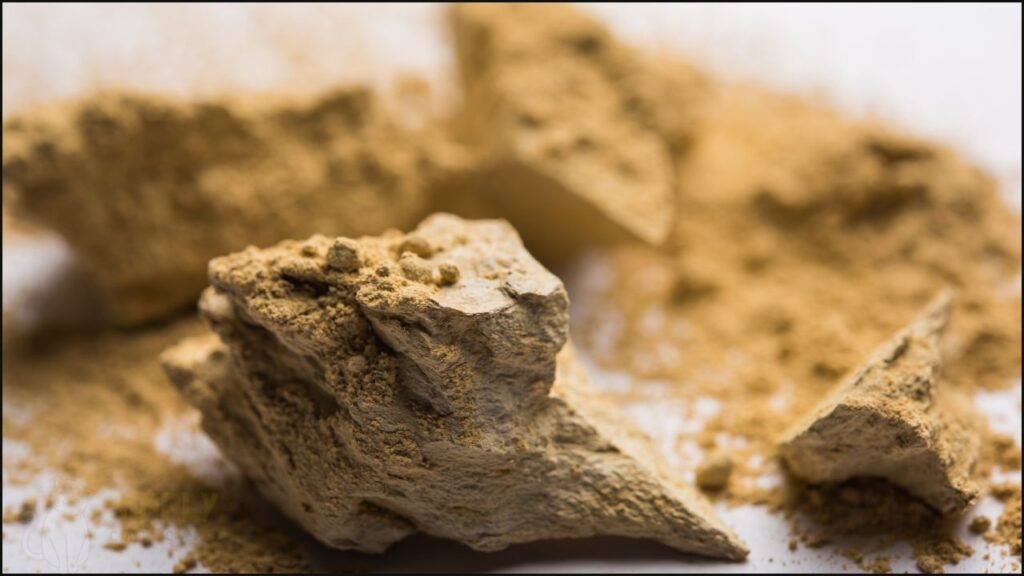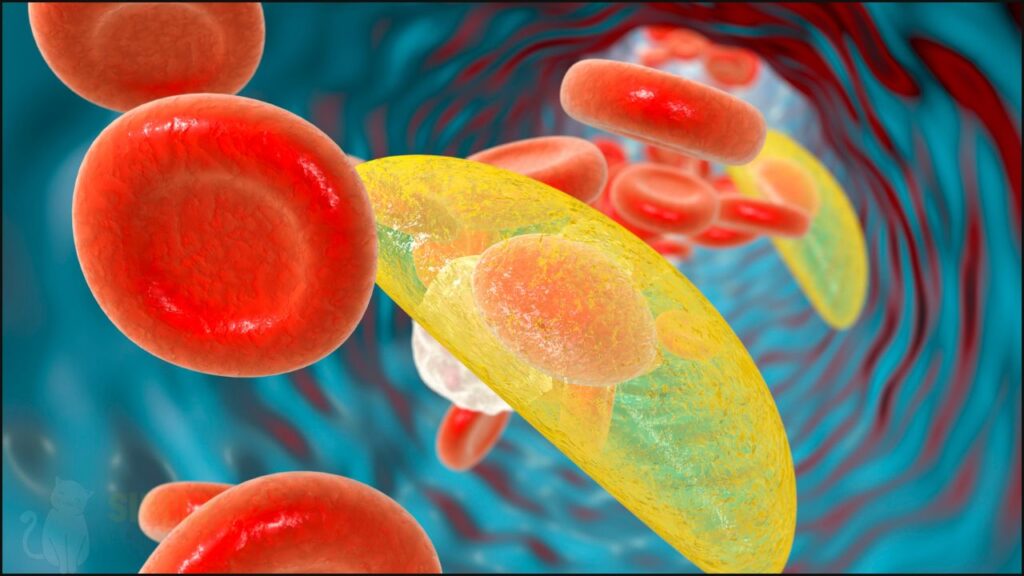Can cat litter make you sick?
Maybe.
Health problems linked to cat litter:
- Lung disease
- Bentonite toxicosis
- Mental illness
- Hyperthyroidism
- Campylobacteriosis
- Salmonellosis
- Giardiasis
- Roundworm exposure
- Cat scratch fever
The internet is littered (pardon the pun) with a lot of info about cat litter and health. It’s enough to make anyone confused.
In this article I’ll go through the research linking cat litter with health problems and what to do to keep yourself safe.
As a dietitian, I have a background in researching nutrition for humans, but am also a cat nutrition enthusiast.
I’ve researched the literature to provide evidence based suggestions for using cat litter.
Whilst I am not a veterinarian, I have taken every effort to ensure the information is accurate and helpful.
Please note that this article is not intended as a replacement for medical advice.
>> Learn More on our About Page
Can Cat Litter Make You Sick?
Cat litter is linked to a variety of health problems.
Let’s take a look at each area and how it affects the health of you and your cat.
Lung Disease
Linked to bentonite clay cat litter.
Bentonite clay litter contains crystalline silica.
Crystalline silica is a mineral found in natural Earth materials like rock, concrete, and other industrial materials as well as clay cat litter.
It’s cheap and offers great water absorption for cat litter.
The particles can enter the airways without any immediate effect to health. It’s odorless, colorless, and non-irritating.
However it can affect human health from inhalation of silica dust.
Evidence?
In 2022, a 44 year old woman with kidney failure checked into hospital with:
- Weight loss
- Coughing
- Fever
- Decreased exercise tolerance.
A biopsy found lesions in the lungs with silicon deposits.
History revealed she owned 9 cats all using bentonite clay litter.
Her lung and kidney function improved in 4 months with prednisone and removal of all bentonite clay cat litter.
A similar case study in 2012 saw a 44 year old woman with 8 cats presented with breathing problems.
The issue also resolved by avoiding bentonite clay cat litter.
Recently, there’s been a rise in silicosis (lung disease) from tradesman using stone products in Australia. Some workers have irreversible lung damage.
Bottom Line:
Both case studies are of people with a lot of cats.
More cats = more litter = more dust.
There’s also evidence from tradesman with heavy exposure to silicon dust from work.
For single cat owners, harm is less likely. I feel it’s best avoided.

Bentonite Toxicosis
Bentonite clay litter can affect cats too if they eat it.
A 1996 study reported a 2 year old cat visiting a clinic with:
- Lethargy
- Muscle weakness
- Dehydration
The cat also had a potassium deficiency (hypokalemia).
Researchers found the cat ingested bentonite clay litter. The cats health improved when taken off clay litter.
However the owner put their cat back on the litter, the cats health declined, and the owner got the cat euthanized.
Bottom Line:
Doesn’t seem like there’s much research on this one.
If your cat tries to eat litter, then I think it’s best to opt for a plant based litter for safety.
Mental Illness
Cat poo can have parasites.
One is a brain parasite called toxoplasma gondii, which affects 40% of cats.
A study of 40,000 Danish blood donors found those exposed to cat feces had a 47% increased risk of schizophrenia (translates to about a 1% higher rate).
The parasite is also transmitted in raw meat.
Globally, the parasite infects about 1 billion people.
A study in Iraq found 27.5% of women visiting a vet clinic infected with the parasite (toxoplasmosis). About 10% of cats had feces infected with the parasite.
A Maryland lab studied this brain parasite, but got shut down.
The lab gave cats infected meat to harvest parasites, then euthanized them. This drew an uproar in animal activists, hence the decision to stop research.
So without more research, it’s unclear what the full effect to health is.
Bottom Line:
Stay clean.
Avoid touching cat poo directly and maintain daily cleaning.
This reduces your risk of infection.

Hyperthyroidism
Hyperthyroidism affects 10% of geriatric cats.
The rate of hyperthyroidism is increasing in cats.
1 in 10 cats were hyperthyroid in 2019 compared to 1 in 100 in 1980.
This is an overproduction of thyroid hormone with symptoms including:
- Weight loss
- Diarrhea
- Vomiting
- Increased appetite
Cat litter may have a role in the disease.
A 1999 analysis of over 300 hyperthyroid cats found a 3 fold increase in the disease if using cat litter.
What type of litter is unclear.
There’s many possible causes of hyperthyroidism:
- Flame retardant in furniture
- High iodine foods (e.g. fish)
- Flea sprays
- Flea powders
- Indoor dwelling
- Canned cat food
Flame retardant mimics thyroid hormone in cats. The rise in hyperthyroidism in cats follows the increase in the use of flame retardant.
Bottom Line:
Cat litter is possibly linked to hyperthyroidism, but flame retardant is most likely to blame.
If your cat is hyperthyroid it couldn’t hurt to switch cat litter to see if it helps with management. More research needed though.
Toxoplasmosis
Toxoplasmosis is a single celled parasite that is often found in raw meat.
This parasite is also found in soil contaminated with feces.
Cats can get the parasite by eating mice, rats, birds and raw meat.
Toxoplasmosis is dangerous to pregnant women because it can transfer to infants in utero.
Infection in a fetus can lead to:
- Mental retardation
- Epilepsy
- Blindness
- Death
Limiting your cats outdoor exposure (or keeping them in an enclosure) will help prevent infection, as well as avoiding raw meat.
Of course, keeping the litter tray clean and using gloves will also help prevent infection.
Pregnant women are advised not to clean the litter tray.
Giardiasis
Giardiasis is a protozoan parasite that can find it’s way into the small intestine of cats.
Symptoms of infection include diarrhea and weight loss.
It’s transferred from the fecal to oral route, so it’s best to keep the cat litter tray clear to avoid infection from cat to cat.
The parasite doesn’t seem to transfer to humans zoonotically, however it’s not clear if that’s the case. Caution is advised.
Roundworms
Roundworms (called ascarids) are parasites that live in the intestine of cats and dogs.
Toxocara cati is the main form that infects cats.
It can infect kittens through nursing via the queens milk. The parasite is also found in prey animals like rodents and birds.
Roundworms may be zoonotic and pass into the feces, so once again it’s another reason to clean the cat litter box every day with gloves.
Ammonia Exposure
Ammonia is a colorless gas with a pungent odor.
It’s made from bacteria metabolizing the waste from animals and humans (including cats).
The ammonia gas is toxic to the eyes and respiratory tract. It can even cause death at high enough concentrations in the air.
Cleaning out the litter tray daily helps prevent this pungent and potentially health harming gas from building up from bacteria breakdown.
Using a well ventilated area is also a great idea.
Activated carbon has a high adsorbent (gas absorbing) capacity and helps reduce ammonia smell in cat litter.
You can buy cat litter with added activated carbon or use granulated form and sprinkle it into litter. Cats also prefer cat litter with activated carbon, so there’s that.
Conclusion
Health problems linked to cat litter include:
- Lung disease
- Bentonite toxicosis
- Mental illness
- Hyperthyroidism
Exposure to heavy amounts of dust from bentonite clay litter increases the risk of health problems in the lungs.
Most cases are from tradesman or those with a lot of cats in the house.
Cat poo may contain a parasite linked with mental illness in humans. Finally, cat litter is also linked to hyperthyroidism.
Consider using plant based litter to reduce the risk of illness.
Above all else, keep the cat litter clean by scooping it out every day and maintain good hygiene (e.g. use gloves and wash hands after handling the cat litter tray).
>> Recommended plant based cat litter World’s Best Cat Litter
Further reading:
